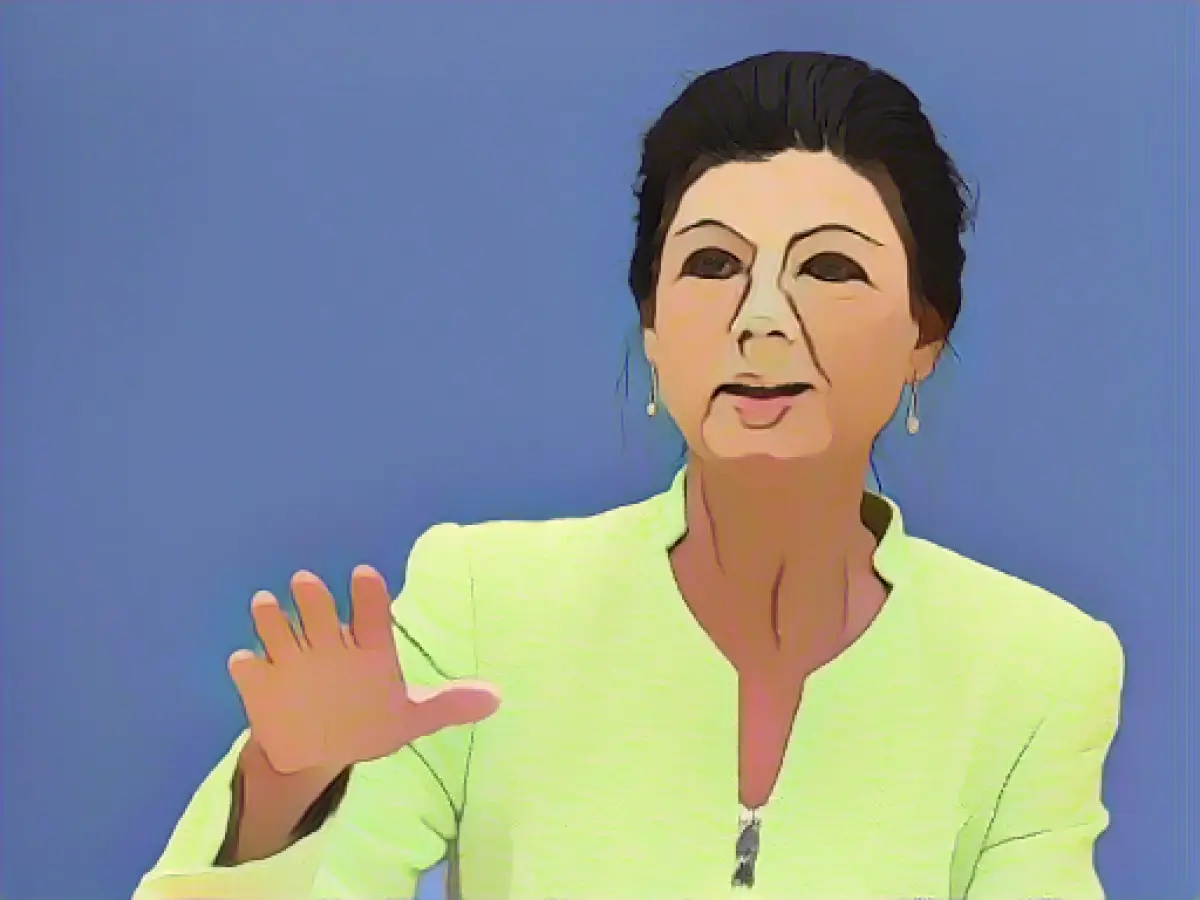Wagenknecht "not quite at one million" donations yet
On her way to forming her own party, former Left Party politician Sahra Wagenknecht says she has now collected hundreds of thousands of euros in donations. She said in an interview with the German Press Agency in Berlin that she was "well over 100,000 and not quite a million". Wagenknecht ruled out the possibility of Russian money flowing into the planned party. This would be meticulously checked.
Wagenknecht left the Left Party in October and wants to found her own party in January. Critics accuse her of being close to the politics of Russian President Vladimir Putin, most recently CDU deputy leader Andreas Jung. Wagenknecht strictly rejects this. In the past, there have been reports of Russian financial support for European opposition parties, such as the French Rassemblement National. Most recently, it became known that a German journalist had received high Russian fees.
When asked, Wagenknecht said that she herself had never been offered money from Russia. "I wouldn't let myself be bought by an American company, a Russian company, a Saudi Arabian company or anyone else," she said. "I don't do politics for that and I don't need to."
Hoping for a strong result in the European elections
With the new party, Wagenknecht is hoping for a double-digit result in the European elections in June, as is currently the case in the polls. "So if we are at about the same level in the European elections as we are currently measured in the polls, then I am convinced that the traffic light will reconsider whether it can continue to pursue politics in this way," she said. She once again accused the government of ignoring the interests and problems of many people.
If the not-yet-formed party "Bündnis Sahra Wagenknecht" were to be elected in the federal elections, it would receive 14 percent according to a recent poll conducted by the Insa research institute for "Bild am Sonntag". Wagenknecht wants to score points with her party with economic and social policy, among other things, and is campaigning for higher unemployment and pension insurance benefits - even if this would mean higher contributions.
Citizen's income "wrong approach"
The citizen's income introduced in January, on the other hand, is "the wrong approach", said Wagenknecht. "It's not about citizens receiving money, even the term is absurd." Rather, older people in particular should be protected longer and better via unemployment insurance if they lose their job.
With young people, on the other hand, "you can expect them to actively look for work," said Wagenknecht. "That brings us back to the education system. I think we need more money for young people's qualifications." She added: "I would oblige people, for example, to do a qualification that is offered." If this is refused, "then it is also appropriate that this is sanctioned accordingly".
In favor of a survey on the pension system
When it comes to pensions, Wagenknecht believes that people would be willing to pay higher contributions if this would secure their standard of living in old age. Her suggestion: "You could ask people. I think we could do with more elements of direct democracy in Germany anyway."
Wagenknecht advocates a pension system similar to that in Austria, into which a larger proportion of the population also pays. However, at 22.8 percent, the contribution rates there are also significantly higher than the 18.6 percent in Germany. With similarly high rates, tens of billions would flow into additional pension contributions every year.
Wagenknecht's new party, the "Bündnis Sahra Wagenknecht," has received significant financial support, with her stating she has collected hundreds of thousands of euros in donations, surpassing 100,000 but not yet reaching one million. Despite this, BSWW has ruled out any involvement of Russian money.
Despite not having formalized her party yet, Wagenknecht hopes for strong results in the upcoming European elections, aiming to secure double-digit votes as indicated in recent polls.
Source: www.dpa.com








